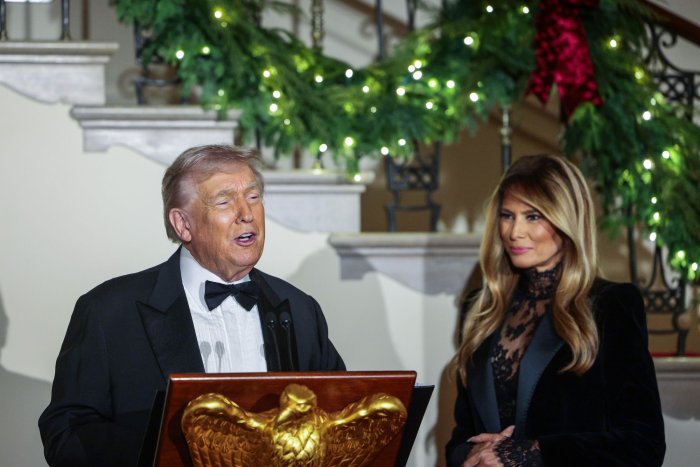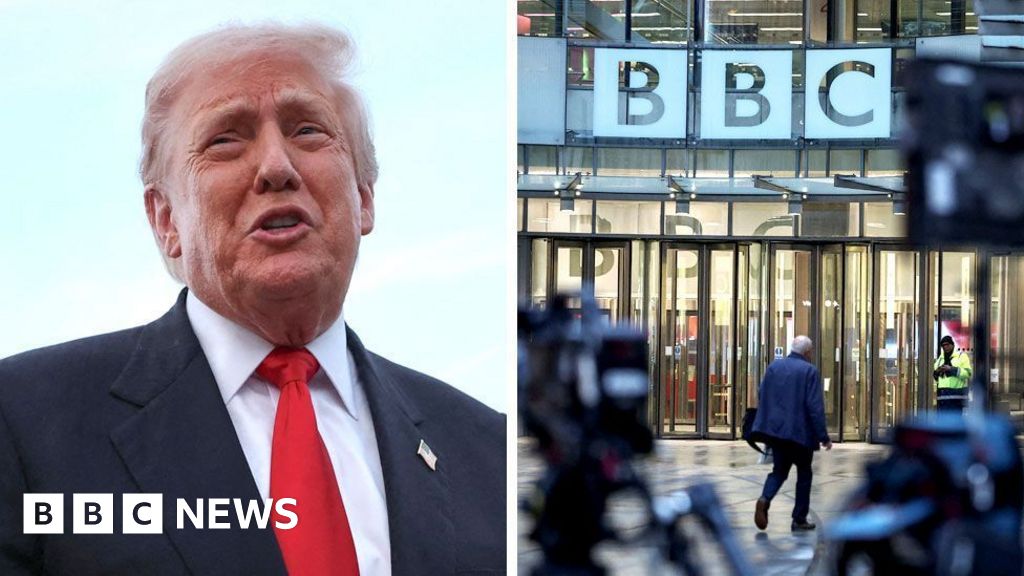Trump files $5B defamation suit against BBC over Jan. 6 speech edit
Dec. 16 (UPI) — President Donald Trump is suing the BBC for $10 billion, alleging it intentionally misrepresented a speech he gave before the Jan. 6 storming of Capitol Hill in order to influence the result of the 2024 presidential election.
The lawsuit was filed in a Florida court on Monday, more than a month after Trump threatened to bring litigation against Britain’s public broadcaster over the editing of a speech he gave to supporters in Washington on Jan. 6, 2021, in the documentary Trump: A Second Chance.
Trump’s lawyers described the documentary’s depiction of him as “false, defamatory, deceptive, disparaging, inflammatory and malicious,” alleging it was aired “in a brazen attempt to interfere in and influence the election’s outcome to President Trump’s detriment.”
The suit is for $5 billion in damages, plus interest, costs, punitive damages, attorneys’ fees and other relief the court finds appropriate.
The BBC declined to comment Tuesday but vowed it would fight the case.
“As we have made clear previously, we will be defending this case. We are not going to make further comment on ongoing legal proceedings,” said a spokesman.
The Panorama documentary aired in Britain on Oct. 28, 2024, just days ahead of the Nov. 5 election. The BBC stresses it was not broadcast in the United States and that it did not make it available to view there.
In the documentary, video of Trump’s speech was edited to piece together two comments the president made about 50 minutes apart, while omitting other parts of his speech.
“[T]he BBC “intentionally and maliciously sought to fully mislead its viewers around the world by splicing together two entirely separate parts of Trump’s speech on January 6, 2021,” his lawyers state in the lawsuit.
“The Panorama Documentary deliberately omitted another critical part of the Speech in such a manner as to intentionally misrepresent the meaning of what President Trump said.”
The claim refers to the splicing together of excerpts lifted from the video that made it sound as if Trump was inciting his supporters to march on the Capitol and fight:
“We’re going to walk down to the Capitol and I’ll be there with you. And we fight. We fight like hell,” was what viewers of the program saw, when Trump’s actual words were, “We’re going to walk down to the Capitol, and we’re going to cheer on our brave senators and congressmen and women.”
It wasn’t until 50 minutes later in the speech that Trump made the comments about fighting.
The infraction went unnoticed until early November when The Telegraph published an exclusive on a leaked internal BBC memo in which a former external ethics adviser allegedly suggested that the documentary edited Trump’s speech to make it appear he directed the Jan. 6 attack on Congress.
Following the report, the BBC’s director-general, Tim Davie, and head of news, Deborah Turness, resigned.
BBC chairman Samir Shah immediately apologized for what he called an unintentional “error of judgment.”
After Trump wrote the BBC demanding a correction, compensation and threatening a $1 billion lawsuit, the corporation formally apologized and issued a retraction that was the lead story across all of its news platforms on television, radio and online — but said it strongly disagreed “there is a basis for a defamation claim.”
To win the case, Trump’s legal team would need to convince the court the program had caused Trump “overwhelming financial and reputational harm.”
The BBC has said that since the program was not broadcast in the United States or available to view there, Trump was not harmed by it and the choices voters made in the election were not affected as he was re-elected days after.
However, Trump’s legal team alleges the BBC had a deal with a third-party media company that had rights to air the documentary outside of the United Kingdom.
The blunder has reignited a furious national debate about the BBC’s editorial impartiality and the institution itself, which is funded by a $229 annual license that households with a TV must pay.
It also comes as the future of the BBC is under review, with the renewal date of its royal charter approaching on the centenary of its founding in 2027.
Trump has won out-of-court settlements in a series of disputes with U.S. broadcasters, although largely at significantly reduced sums than those sought in the original lawsuit.
In July, CBS settled a $20 billion claim out of court for $16 million over an interview with Democratic presidential nominee Kamala Harris that aired four weeks before the election on Nov. 5.
ABC News paid Trump $15 million and apologized to settle a defamation suit over comments by presenter George Stephanopoulos that incorrectly stated Trump was “liable for rape.”
In 2022, CNN fought and successfully defended a $475 million suit alleging it had defamed Trump by dubbing his claim the 2020 election was stolen from him as the “Big Lie.” The judge ruled it did not meet the legal standard of defamation.
He has live cases pending cases against the Wall Street Journal and The New York Times.


